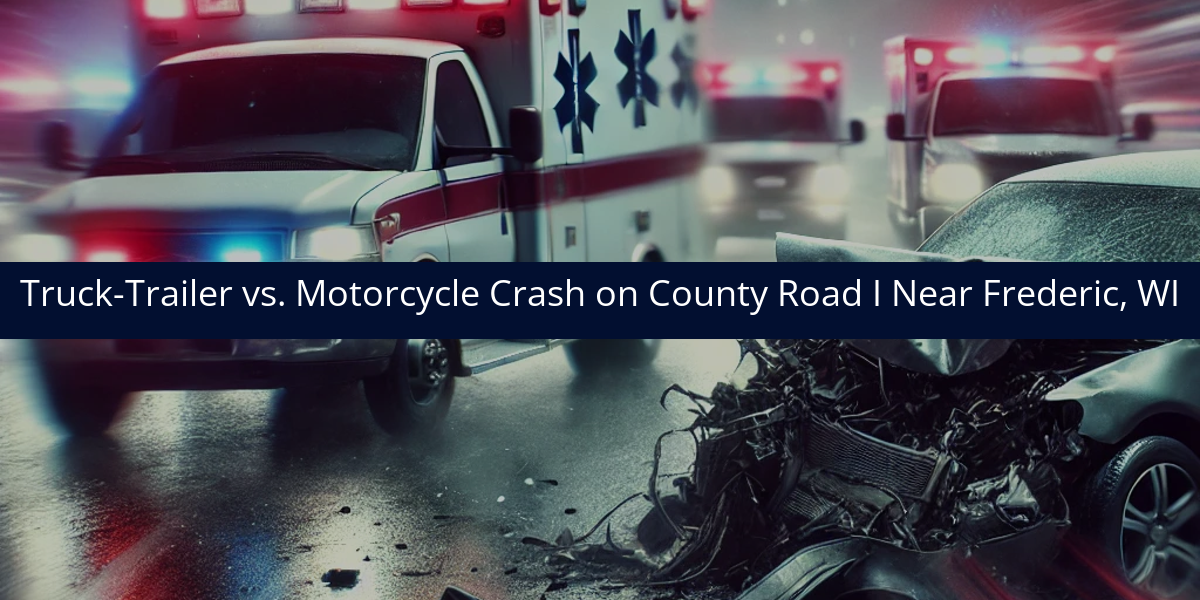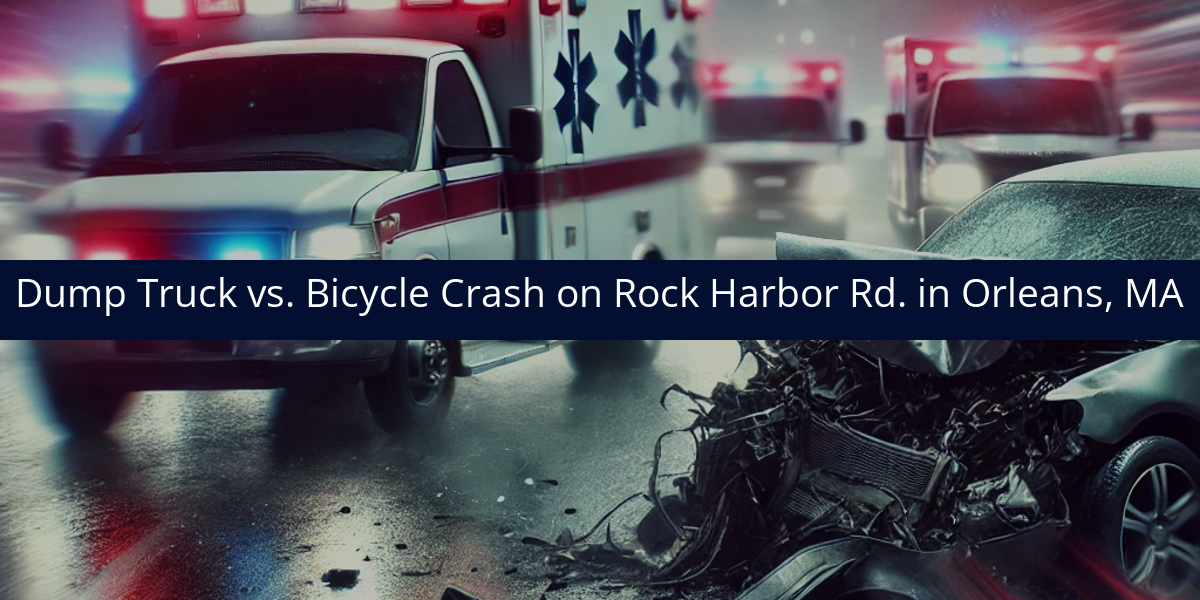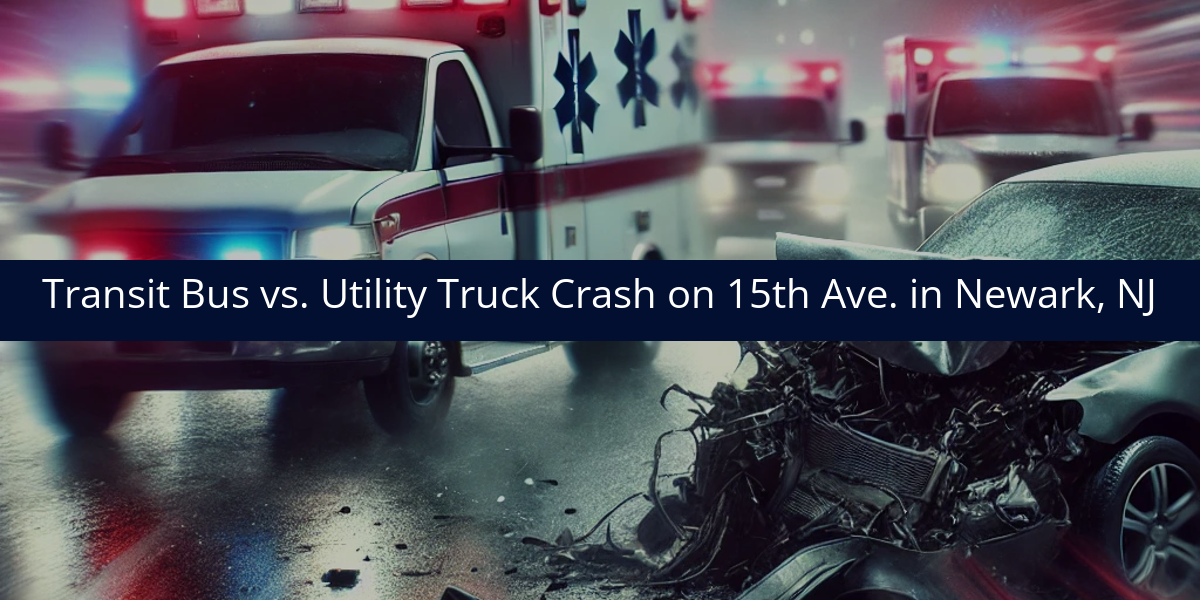A lot of factors can trigger a serious commercial truck accident, which is why a trucker's mind must be clear and their reflexes sharp on the road. Unfortunately, some commercial drivers travel while impaired, which means their senses and reflexes are dulled for one reason or another. When they take the wheel in anything less than optimal shape, they endanger themselves and those around them. But how often does that really happen? Put another way: How common are truck accidents caused by impaired truckers?
Answer: Depending on the year, truck accidents caused by impairment range between 4.2%-5.2% of all fatal accidents where the truck driver is considered responsible. That's around 230 to 250 fatal truck crashes each year due to truck driver impairment.
In this article, we'll talk about where our statistics came from, what "impaired" really means, and why this information matters to truck accident victims.
Where Do the Impairment Accident Statistics Come from?
The numbers listed in the answer above were obtained through the Federal Motor Carrier Safety Administration (FMCSA), the government organization dedicated to monitoring commercial vehicle travel and safety in the U.S.
Agency analysts looked at truck accidents from 2019-2021 where the truck driver was allegedly to blame. In those three years, impairment was reportedly responsible for the following numbers:
| Year | Number of Accidents | % of Total Recorded Accidents |
| 2019 | 234 | 4.7% |
| 2020 | 248 | 5.2% |
| 2021 | 234 | 4.2% |
Those are the accidents where impairment was specifically thought to be the cause—but what does the FMCSA mean by that term?
What Does Impairment Really Mean?
Impairment is a state where a driver's ability to operate their vehicle is negatively affected. Alcohol or illicit drugs can do that, of course, but the term can also cover things like excessive fatigue, prescription side effects, or even illness. If the driver has slowed reaction times, poor coordination, or reduced judgment, whatever its cause, that may be described as impairment.
It's also important to note that impaired doesn't necessarily mean "intoxicated" the way you might think. When people hear a truck driver was impaired, they may think of him stumbling drunk out of a bar and hitting the road when he can't see straight. That's not always the case. In fact, commercial truck drivers are actually considered legally intoxicated if they have a BAC of .04%—just half of the .08% standard observed for other drivers. Does that mean the state thinks truckers are lightweights? Far from it. The dangers of driving a 40-ton truck in a less-than-perfect mental state are simply so high that even being a little "buzzed" (in other words: impaired) is enough to fall on the wrong side of the law.
Basically what we're talking about with impairment is a condition that makes someone unable to think, react, or focus fully. Any such issue is dangerously compromising to a commercial truck driver, so if they hurt people in that state then someone—or several someones—should be held accountable.
Who is Liable for an Accident Caused by an Impaired Trucker?
A truck driver with a foggy brain puts everyone at risk if they can't react quickly enough to traffic or a changing light. If they cause a wreck because they're impaired one way or another, they may have to pay the price for their choices—but they may not be the only ones. So who might be liable for an accident like that?
- The Driver: The first party to look at in just about any accident is the one who allegedly caused it. A professional truck driver who triggers a crash should answer for it, especially if they had any reason to think they weren't up to the task of driving at the time. It can be hard to trade billable road time for wellness, but the consequences far outweigh the sacrifice. An impaired driver risks termination, a suspended license, and possible civil liability for ignoring their instincts and causing an accident.
- Trucking Company: According to the law, a trucking company must keep an eye on the activities and well-being of its drivers. For example, it has to vet new employees with background checks, and those already on the payroll must be routinely screened for substance abuse and health concerns.
If a driver mentions he's deeply hung over, or he was up late because of a bad cough or fever, then his supervisor should take that as a sign to pull him from duty. If the supervisor fails in their duty to protect the employee and the public by keeping an impaired truck driver off the road, then the company may be legally responsible for any injuries he causes on the job.
Naturally, companies try to get around that liability however they can. They often deny noticing that anything was affecting their driver, and argue that he never said a word about feeling poorly before driving away. However, it's the employer's responsibility to actively look for signs and react accordingly—not just wait for a driver to voluntarily lose his route and pay. - Third-Party Dispatcher: Many trucking companies keep their ranks slim by outsourcing and contracting a lot of non-driving roles, like fleet maintenance, bookkeeping, and even dispatch duties. Those dispatchers occasionally decide they know better than a driver, making unreasonable demands that put the driver and other motorists at risk. We've spoken to more than a few truckers who told us their dispatchers insisted they keep going, even as impairment like exhaustion or serious illness made it hard to think straight. In those cases, a dispatcher and their employer may bear some blame for keeping the impaired driver on the road.
- Alcohol Vendors In Texas: We wrote earlier how "impaired" doesn't necessarily mean "intoxicated," but there are times when it definitely does. If a bar or restaurant over-served the trucker alcohol before his wreck, that business may be liable for it under Texas dram shop law, which holds alcohol providers legally accountable for over-serving customers—often long past the .08% cutoff.
Since truck drivers' limit is much lower at .04%, alcohol vendors aren't always guilty of dram violations even if some alcohol was involved. Still, a careful investigation will try to determine a) if the truck driver had any drinks before driving and b) where those drinks came from.
Depending on the circumstances of a truck accident there may be other defendants, such as road designers, maintenance technicians, and other motorists. An experienced attorney will learn all the details and ensure nobody who played a role escapes notice—which is why it's so important to get the right allies in your corner.
What Does All This Mean for Accident Victims?
Investigating just about any truck accident is far more complex than it is for a typical car crash, and cases involving impaired truck drivers are no exception. Attorneys have to find proof the trucker was impaired, stay up to date on trucking industry laws and regulations, and be ready to go toe-to-toe with corporate defense attorneys and insurers. Not every attorney is up to that challenge.
A lot of personal injury lawyers work primarily with car accidents, and may get only a single truck accident case over the course of their career. If they're called upon to work on something as complex as a truck crash with an impaired driver, they may leap at the chance—but they (and their clients) often quickly learn they're out of their depth. A constantly-changing regulatory atmosphere, specialized insurance policies, and the cutthroat tactics of a company eager to protect its interests may be too much for an inexperienced lawyer to handle effectively. Their clients would be better off in the hands of a firm that makes truck accidents its primary focus.
Grossman Law Can Help with Your Truck Accident Case
The attorneys at Grossman Law Offices bring decades of experience handling complex truck accident cases, giving them a long track record of bringing reckless truck drivers and their employers to heel. Our lawyers know the regulations, get the important evidence, and build the cases that help truck accident victims win compensation from even the most stubborn trucking companies and insurers. If you were injured or lost a loved one in any commercial truck accident, including one that may have involved an impaired truck driver, contact Grossman Law today for a free and confidential consultation. We are available to speak with you any time.













